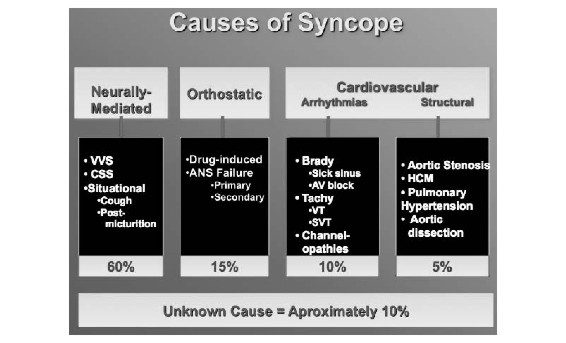Contents
The syncope
How to recognize a syncope?
A syncope is the complete loss of consciousness that is sudden and brief (up to about 30 minutes). It arises as a result of a decrease in blood supply and oxygen supply to the brain.
Sometimes called “unconsciousness” or “fainting”, although these terms are not really suitable, syncope is preceded by dizziness and a feeling of weakness. Then, it results in an unconscious state. A person with syncope regains full consciousness quickly in most cases.
What are the causes of syncope?
There are several types of syncope with different factors:
- The “reflex” syncope can occur during a strong emotion, a strong pain, an intense heat, a stressful situation, or even fatigue. It is a so-called “reflex” syncope because of the reactions of the autonomic nervous system which take place without our being aware of it. It causes a low heart rate and dilation of blood vessels which can cause a decrease in blood supply to the brain and loss of muscle tone, which can lead to syncope.
- In the case of syncope of cardiac origin, the various diseases (arrhythmia, infarction, after physical exertion, tachycardia, bradycardia, etc.) can be responsible for a decrease in the blood and oxygen supply to the brain and therefore a loss of consciousness.
- Orthostatic syncope is caused by low blood pressure and a problem with the distribution of blood in the body which causes a decrease in the supply of blood and oxygen to the brain. This type of syncope can occur in the event of a prolonged standing position, sudden rising, pregnancy or because of certain drugs that can cause a drop in blood pressure (antidepressants, antipsychotics, etc.).
- Syncope can also occur during an intense cough, urination or even during swallowing. These frequent circumstances of daily life can cause a drop in blood pressure or a “reflex” reaction and lead to syncope. This is a so-called “situational” syncope.
- Neurological factors such as a seizure can also cause syncope.
What are the consequences of syncope?
A syncope is generally safe if it is brief unless it is of cardiac origin; in this case complications may arise.
During a syncope, the fall is most of the time inevitable. This can be the cause of wounds, bruises, fractures or even bleeding, which can make it more dangerous than the syncope itself.
When people suffer from recurrent syncope, they may tend to change their lifestyle for fear of it happening again (fear of driving for example), they may become more anxious, more stressed and limit their daily activities.
A syncope that is too long can lead to serious consequences such as a coma, brain damage or even cardiovascular damage.
How to prevent syncope?
To prevent syncope, it is advisable to avoid the sudden change from lying down to standing and to avoid strong emotions.
When syncope occurs, it is recommended that you lie down immediately wherever you are, elevate your legs to allow better blood flow to the heart, and control your breathing to avoid hyperventilation.
Medicines that can affect blood pressure should be avoided. In addition, if you have repeated syncope, do not hesitate to consult your doctor to determine the cause of the syncope and to treat it.
Read also :Our dossier on vagal discomfort What you need to know about vertigo Our fact sheet on epilepsy |










